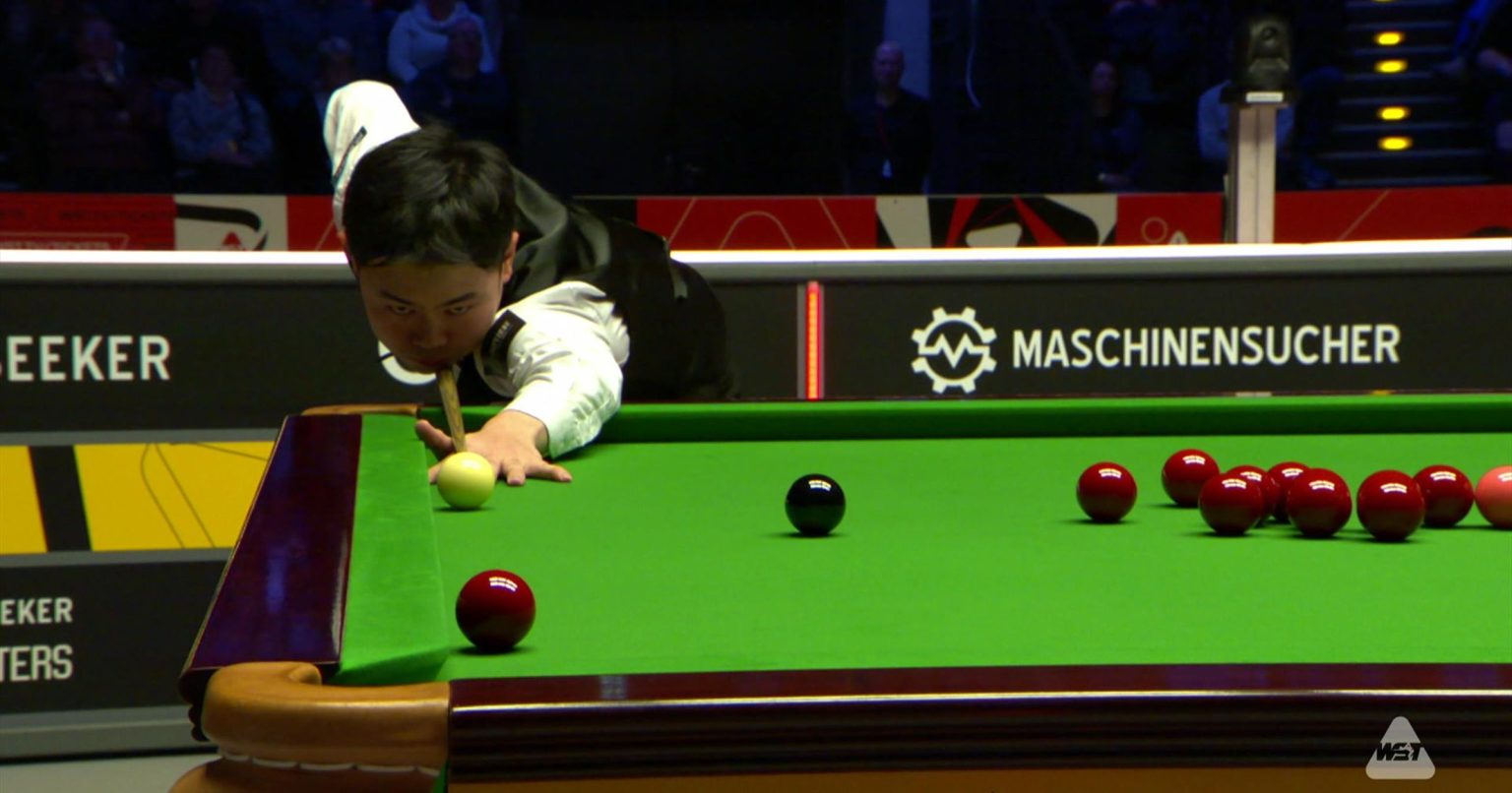The tranquil atmosphere of the Tempodrom in Berlin, host to the 2024 German Masters snooker semi-final, was shattered by an unexpected intruder – a ringing mobile phone. The disruptive incident occurred during a crucial juncture in the match between seasoned professional Barry Hawkins and rising star Yuan Sijun, injecting an element of unwelcome drama into the otherwise focused and deliberate proceedings. Hawkins, poised to execute a delicate shot, was visibly startled by the jarring ringtone, breaking his concentration and potentially impacting the outcome of the frame. This seemingly minor interruption underscored the delicate balance of focus and precision required in professional snooker, highlighting how even the slightest disturbance can have significant repercussions on a player’s performance. The incident immediately became a talking point, sparking discussions about etiquette, spectator responsibility, and the increasing prevalence of technology-related disruptions in sporting events.
The disruption occurred during the fourth frame of the semi-final, with Hawkins holding a slender 2-1 lead. As he leaned over the table to play a critical shot, a mobile phone began to ring loudly from somewhere within the audience. The unexpected noise caused Hawkins to visibly flinch, breaking his concentration and forcing him to pause mid-stroke. The disturbance was palpable, breaking the hushed silence that typically characterizes professional snooker matches. The referee immediately intervened, appealing for the owner of the offending phone to silence it. After a brief, awkward pause, the ringing stopped, and play eventually resumed. However, the damage had been done; the momentary lapse in concentration had disrupted Hawkins’ rhythm, and the impact on his subsequent performance remained a point of discussion.
The incident highlighted the unique pressures and demands placed on professional snooker players. The sport requires an extraordinary level of focus and precision, where even the slightest distraction can have a detrimental impact. Players must maintain intense concentration for extended periods, carefully calculating angles, spin, and power for each shot. A sudden, unexpected noise, like a ringing mobile phone, can disrupt this delicate mental state, breaking the player’s flow and potentially affecting the outcome of the frame, and indeed, the match. The incident involving Hawkins underscored this vulnerability, demonstrating how easily external factors can intrude upon the meticulously crafted environment of professional snooker.
The mobile phone incident sparked a wider conversation about spectator etiquette and responsibility at sporting events. While most attendees understand the importance of maintaining a respectful and quiet atmosphere during play, occasional lapses occur. The increasing prevalence of mobile phones and other electronic devices has exacerbated this issue, creating more opportunities for unintentional disruptions. The incident at the German Masters served as a reminder of the importance of silencing mobile phones and other devices before entering sporting venues. It also highlighted the need for clear and consistent messaging from event organizers regarding appropriate spectator behavior, emphasizing the impact that even seemingly minor disruptions can have on the athletes and the overall sporting experience.
Beyond the immediate impact on the match, the incident raised more profound questions about the role of technology in modern sports. While technology has undoubtedly enhanced the fan experience through instant replays, statistics, and social media engagement, it also presents potential challenges. The ubiquitous nature of mobile phones, while offering convenience and connectivity, can also be a source of distraction and disruption, as evidenced by the incident in Berlin. This raises the question of how to best manage the integration of technology into the sporting environment, balancing the benefits with the potential for disruption. Finding the right balance between enhancing the fan experience and preserving the integrity of the sporting competition remains an ongoing challenge.
The mobile phone incident at the German Masters served as a microcosm of the larger issue of technological disruption in sports. It highlighted the vulnerability of athletes to external distractions, the importance of spectator etiquette, and the evolving relationship between technology and the sporting experience. While the incident itself was relatively minor, it sparked a broader conversation about the responsibilities of both spectators and event organizers in maintaining a respectful and distraction-free environment for athletes to perform at their best. As technology continues to permeate all aspects of our lives, finding ways to mitigate its potential for disruption in sporting contexts will become increasingly important. The incident served as a timely reminder that while technology can enhance the sporting experience, it must be carefully managed to avoid undermining the very essence of competition.


